Speakers
Ilaria Chilloti

Ilaria Chillotti is a researcher in cryptography, specialized in homomorphic encryption. She notably co-authored TFHE, one of the fastest homomorphic encryption schemes in the world. She is the author of several publications, and winner of the “Best Paper Awards” at Asiacrypt 2016 as well as the iDASH competition in 2019. Before joining Zama, Ilaria was at Microsoft Research and then in postdoc at KU Leuven. She holds a BSc from Cagliari University, a MSc from Joseph Fourier University in Grenoble, and a PhD from Versailles Paris-Saclay. She is currently Director of Research of the Concrete Framework division at Zama.
Daniel Gruß
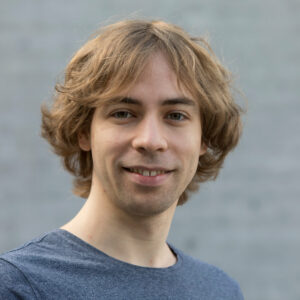
Daniel Gruß (@lavados) is an Associate Professor at Graz University of Technology. He has been teaching undergraduate courses since 2010.
Daniel’s research focuses on side channels and transient execution attacks. He implemented the first remote fault attack running in a website, known as Rowhammer.js. His research team was one of the teams that found the Meltdown and Spectre bugs published in early 2018. He frequently speaks at top international venues.
Elisabeth Oswald
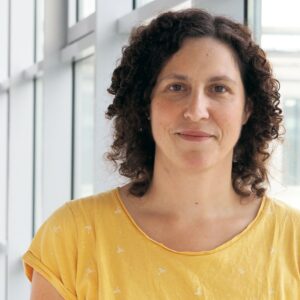
Elisabeth Oswald is Professor in Applied Cryptography at the University of Bristol and Professor of Cybersecurity at AAU Klagenfurt. After completing her PhD at TU Graz, she built up Bristol Cryptography’s side channel research activity. She previously was an EPSRC Leadership Fellow, and currently holds an ERC consolidator award. She was program chair of CHES and Eurocrypt, and is associate editor of the Journal of Cryptology and the Journal of Cryptographic Engineering. Her research interests are in the general area of applied cryptography and range from statistical and machine learning methods in the context of leakage analysis, over implementation techniques to leakage resilient cryptography.
Matteo Maffei
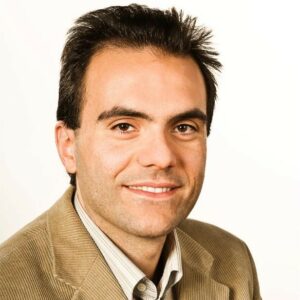
Matteo Maffei is full professor TU Vienna where he heads the Security and Privacy group. He was previously heading the Secure and Privacy-preserving Systems Group at Saarland University. His main research interests are the design of cryptographic solutions to protect the privacy of users in the digital world and in the development of verification techniques to enforce security and privacy properties in programs, devices, and systems. More specifically, this embraces formal analysis of security and privacy properties in distributed systems as well as formal analysis of mobile apps, program verification, security and privacy by design, privacy-enhancing technologies and privacy in cloud applications.
Peter Schwabe

Peter Schwabe is research group leader at MPI-SP and professor at Radboud University. He graduated from RWTH Aachen University in computer science in 2006 and received a Ph.D. from the Faculty of Mathematics and Computer Science of Eindhoven University of Technology in 2011. He then worked as a postdoctoral researcher at the Institute for Information Science and the Research Center for Information Technology Innovation of Academia Sinica, Taiwan and at National Taiwan University. His research area is cryptographic engineering; in particular the security and performance of cryptographic software. He published more than 60 articles in journals and at international conferences presenting, for example, fast software for a variety of cryptographic primitives including AES, hash functions, elliptic-curve cryptography, and cryptographic pairings. He has also published articles on fast cryptanalysis, in particular attacks on the discrete-logarithm problem. In recent years he has focused in particular on post-quantum cryptography. He co-authored the “NewHope” and “NTRU-HRSS” lattice-based key-encapsulation schemes which were used in post-quantum TLS experiments by Google and he is co-submitter of seven proposals to the NIST post-quantum crypto project, all of which made it to the second round, five of which made it to the third round, and 3 of which were selected after round 3 for standardization.
Samuel Pagliarini
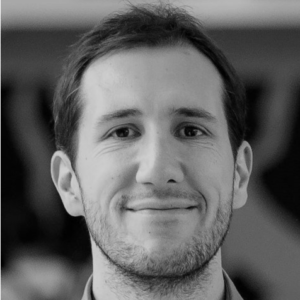
Samuel Pagliarini received the PhD degree from Telecom ParisTech, Paris, France, in 2013. He has held research positions with the University of Bristol, Bristol, UK, and with Carnegie Mellon University, Pittsburgh, PA, USA. He is currently a Professor with Tallinn University of Technology (TalTech) in Tallinn, Estonia where he leads the Centre for Hardware Security. His current research interests include many facets of digital circuit design, with a focus on circuit reliability, dependability, and hardware trustworthiness.
Andrea Fiolardi
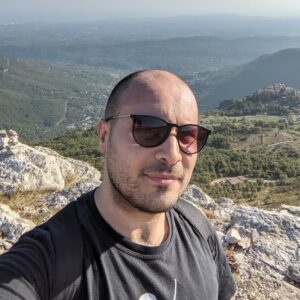
Andrea Fioraldi is currently a Ph.D. student in the Software and Systems Security group of EURECOM under the supervision of Prof. Davide Balzarotti. He is working on new methodologies to improve the effectiveness of security vulnerability discovery techniques such as Fuzz Testing. He is part of the core development team of AFL++, one of the most used fuzzers in industry and academia, and lead developer of the LibAFL fuzzing framework, the future Rust backbone of AFL++.
Jo Van Bulck
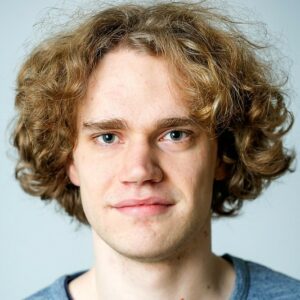
Jo Van Bulck is a postdoctoral researcher in the imec-DistriNet research lab at KU Leuven, Belgium. His research explores microarchitectural security limitations along the hardware-software boundary, with a particular attention for privileged side-channel attacks on trusted execution environments. Jo’s research has uncovered several innovative attack vectors in commodity Intel x86 processors that have led to microcode and silicon mitigations in hardware, as well as software patches in major operating systems and compilers.
Michael Pehl
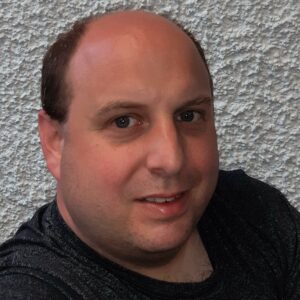
Michael Pehl received his Dr.-Ing. degree (s.c.l.) in 2012 from the Technical University of Munich in the field of electronic design automation. Since that he has been working at TUM’s Chair of Security in Information Technology where he is today a senior researcher leading a group in the research domain of Physical Unclonable Functions and teaching several courses in the domain of hardware security. His current research interests are centered around hardware intrinsic security with a strong focus on side-channel analysis, fault-injection analysis, quality assessment, and the secure design of Physical Unclonable Functions as well as on security features of emerging technologies.
Anders Fogh
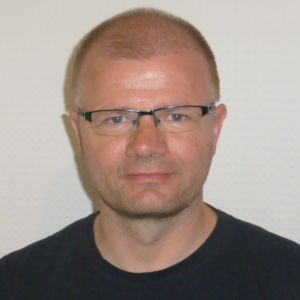
Anders Fogh works as an offensive security research as an Intel fellow. He is a reowned expert on microarchitecture and memory security. Before joining Intel he worked as a principal security researcher where he worked on incident response and malware analysis. He spend 15 years of his career going from junior software developer to company founder and lead engineer. His work on security has been published in both industry and academic conference such as Black Hat USA and ACM CCS.
Thomas Eisenbarth
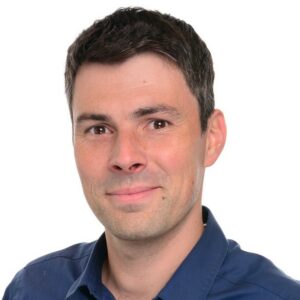
Thomas Eisenbarth is a Professor at the Institute for IT Security at University of Lübeck. Thomas received his Ph.D. in Electrical and Computer Engineering from Ruhr University Bochum, Germany, where he worked as a member of the Horst Goertz Institute for IT Security. He spent two years at the Center for Cryptology and Information Security (CCIS) at Florida Atlantic University. In 2012 he joined the ECE Department and Vernam lab at WPI. Since 2017 he serves as Director Institute for IT Security at University of Lübeck. His research interests include system security, applied cryptography, side channel attacks and countermeasures.
Speakers for the lab sessions
Marcel Nageler

Marcel Nageler is a PhD student in the Castle group at Graz University of Technology.
He received his Master’s degree in 2022 and now researches symmetric cryptography with a focus on cryptanalysis.
Barbara Gigerl

Barbara Gigerl is a PhD Candidate in the Secure Systems Group at the Institute of Applied Information Processing and Communications (IAIK) (Graz University of Technology).
She holds two master’s degrees, one in Computer Science and one in Software Development, and started her PhD in December 2019.
Her research focuses on side-channel analysis and the construction of efficient countermeasures, with a strong focus on formal verification.
Johannes Haring
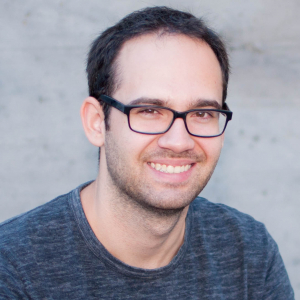
Johannes Haring is a student at Graz University of Technology University of Technology. Since 2016 he has been an active member of LosFuzzys, the capture the flag (CTF) team of Graz University of Technology. He participated in many international security competitions such as CSAW, ACSC and ECSC. He is interested in the many aspects of IT security, including exploitation, reverse-engineering and countermeasures in hardware and software.
Robert Primas

Robert Primas is a PhD Candidate in the Secure Systems Group at the Institute of Applied Information Processing and Communications (IAIK) (Graz University of Technology). Before starting his doctoral studies, he studied computer science in Graz. His research focuses on implementation security of embedded devices as well as symmetric cryptography. In particular, he analyses fault attacks and side-channel vulnerabilities of various cryptographic implementations. He authored multiple papers published at venues such as CHES and ASIACRYPT and is one of the designers of ISAP, a lightweight authenticated encryption scheme that is currently competing in the NIST Lightweight Cryptography competition.
Stefan Gast
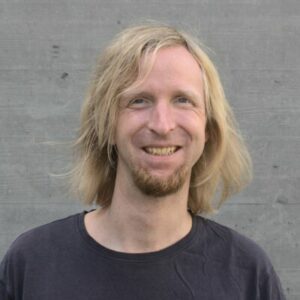
Stefan Gast started his PhD in the CoreSec group at Graz University of Technology in August 2021.
His research focuses on microarchitectural security, exploring side-channel and transient execution attacks and defenses.
Martin Unterguggenberger
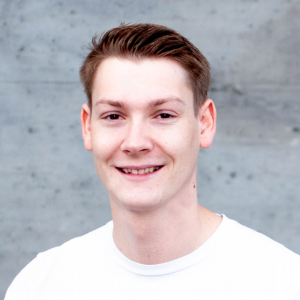
Martin Unterguggenberger is a PhD student under the supervision of Prof. Stefan Mangard. He studied Information and Computer Engineering at Graz University of Technology and graduated in 2021. He is particularly interested in the design of system architectures that provide memory safety and software compartmentalization.
Alberto Larrauri Borroto
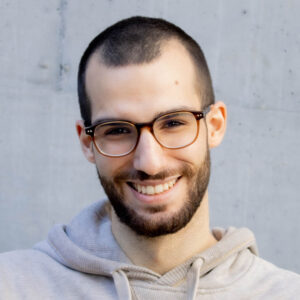
Alberto Larrauri Borroto joined IAIK in 2020 as a member of the Systematic Construction of Correct Systems group. Additionally, he is a PhD candidate in the program of Applied Mathematics at Barcelona Tech, under the supervision of Marc Noy.
